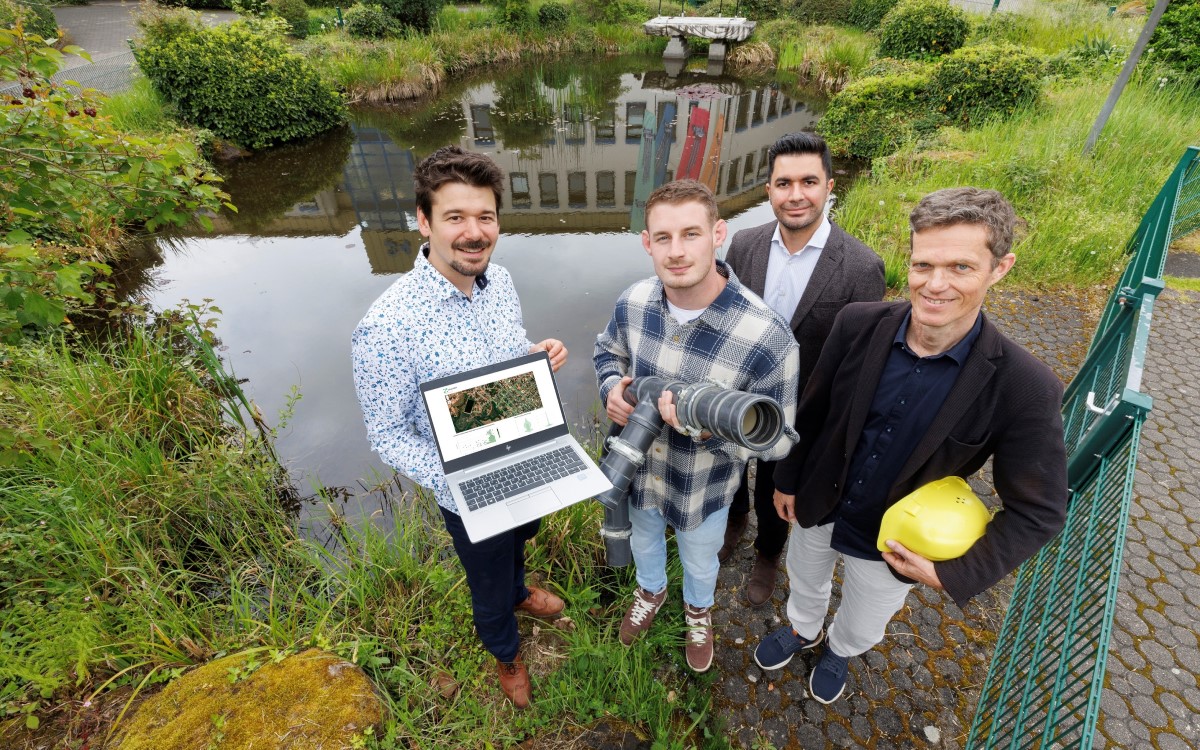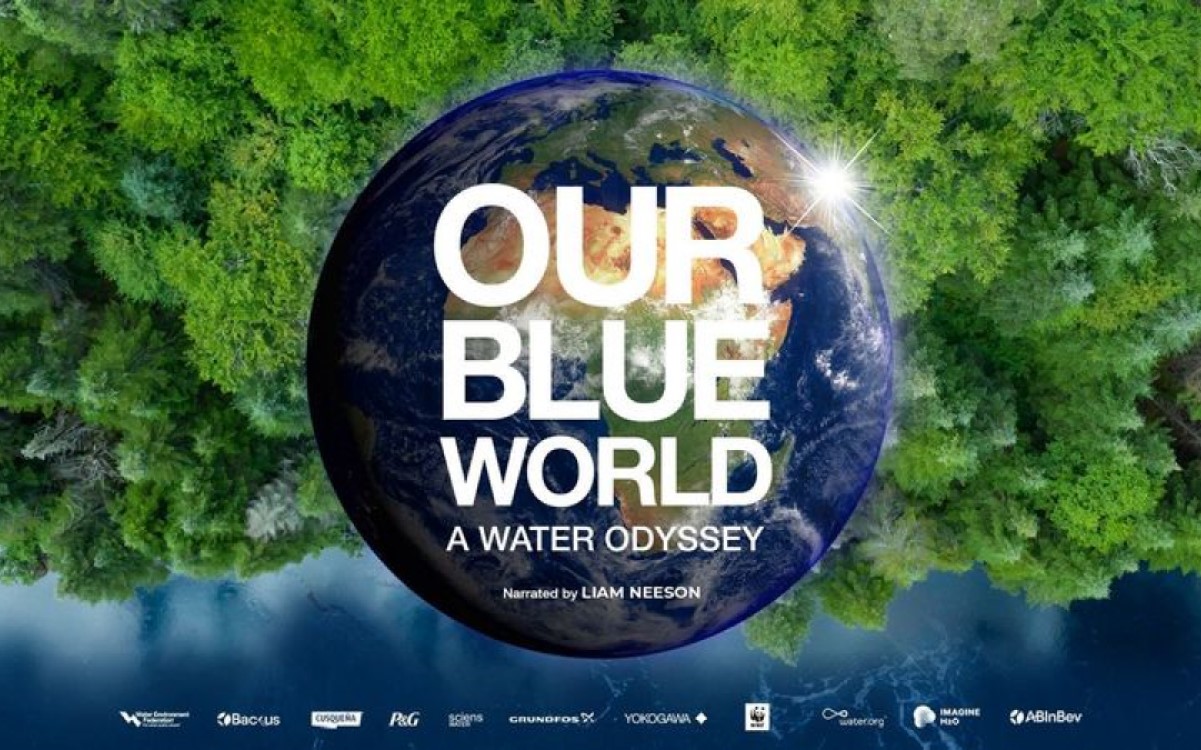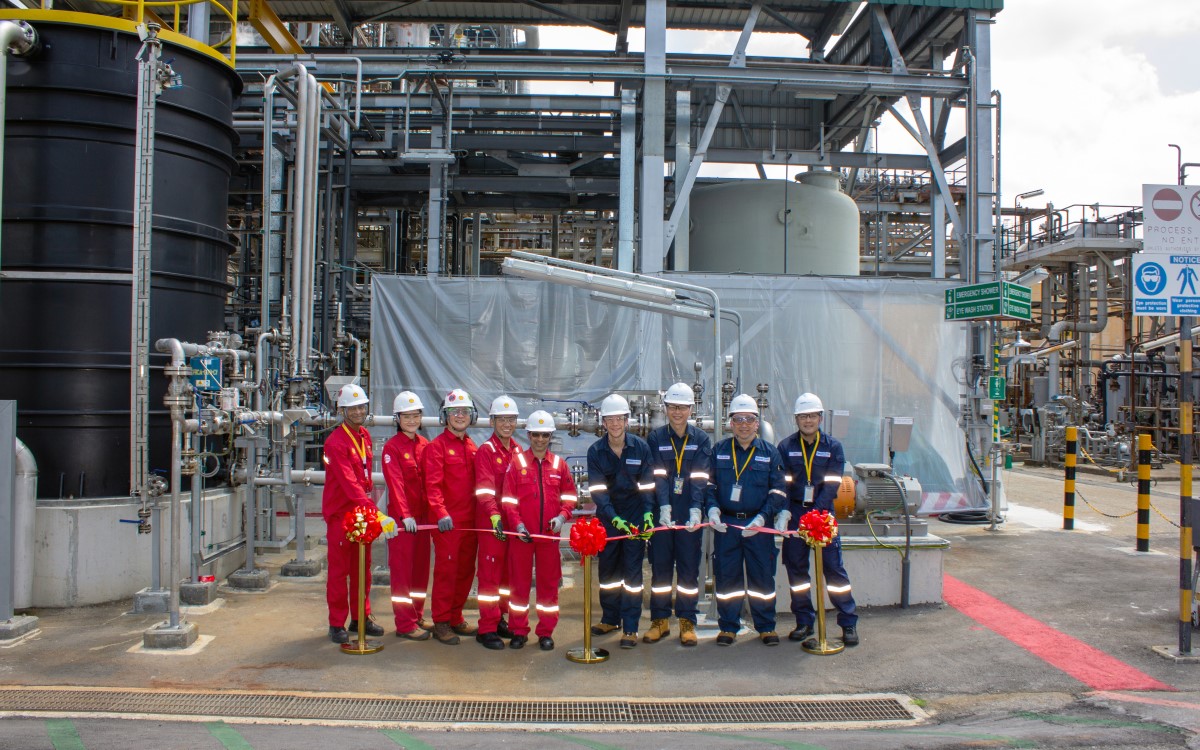April 8th, 2024 Ι Germany boasts a well-established infrastructure for managing rainwater and wastewater, yet many developing countries lack such systems. Addressing this gap, a pioneering start-up from Kaiserslautern has devised a new solution: software that streamlines the design and optimization of sustainable drainage systems, accounting for factors like blue-green infrastructure. This innovative technology not only serves as a vital tool for municipalities but also aligns with global efforts towards clean water accessibility, as outlined in the United Nations’ Sustainable Development Goals.
The team will be presenting its technology at the Hannover Messe at the Rhineland-Palatinate research stand (Hall 2, Stand C36) from 22 to 26 April.
Addressing urban water challenges and sustainable solutions
In many parts of the world, there are slums where thousands of people live in close proximity to each other, with piles of rubbish and standing sewage directly next to them, where germs can multiply quickly. Almost half of the world’s population still lives without a sewer connection and new urban areas are constantly being built without proper drainage. In this respect, the United Nations has set itself the goal of providing access to clean water and sanitation for all people in its Sustainable Development Goals. But this requires an appropriate infrastructure.
The planning of these types of sewer networks for wastewater, rainwater and combined sewage involves a great deal of effort and requires a high level of expertise.
“Different criteria such as layout, the degree of decentralisation or centralisation, the sewer diameters and gradients, the installation depths and the pumping and storage systems all play a role,” says Timo Dilly, a member of the start-up team.
Dilly and his team at the University Kaiserslautern-Landau are currently developing a software programme called ZIGGURAT, which can be used to automatically plan urban drainage systems in a sustainable way.
“The software is based, among other factors, on the combination of a large number of generally applicable technical rules for civil engineering planning and mathematical methods that can be used to generate sensible solution variants,” continues Dilly. “For this purpose, we have developed our own algorithms. All of this is based on the latest findings from our own research work in urban drainage and hydroinformatics.”
Integration of climate resilience and sustainable urban development
Climate change also plays a role in the planning of such drainage systems, as Dilly explains: “The way we deal with rainwater needs to be completely reviewed in light of increasing weather extremes. What we need are solutions to store rainwater, alongside natural areas such as sufficient green spaces. This can help improve the urban climate in hot summer months.”
In this context, blue-green infrastructure is also discussed, which is becoming increasingly important in the planning of new urban drainage systems and is also included in ZIGGURAT’s plans.
“These measures increase cities’ resilience to extreme events, reduce costs and minimise negative effects on the environment,” emphasises the member of the start-up team.
In this respect, the software is also suitable for local cities and municipalities looking to adapt their drainage systems in the future.
In addition to Dilly, his colleagues Dr Amin E. Bakhshipour, Professor Dr Ulrich Dittmer and Ralf Habermehl from the Department of Urban Water Management at the RPTU in Kaiserslautern are involved in the new company called Sustainable Water Infrastructure Solutions GmbH. Marius Lauer, who specialises in business management, is supporting the team. In future, the company intends to provide its software “ZIGGURAT” on an online platform where interested parties can create an account for a fee. In addition to the software, the team from Kaiserslautern also provides its expertise and offers support when it comes to planning, for example.
As the company strives to become self-employed, it is supported by an “EXIST start-up grant” provided by the Federal Ministry for Economic Affairs and Climate Action and the European Social Fund for “University-based Business Start-Ups”.
At the Hannover Messe, the start-up team will be presenting their software at the Rhineland-Palatinate joint stand “Research and Innovation Rhineland-Palatinate”.
More information






